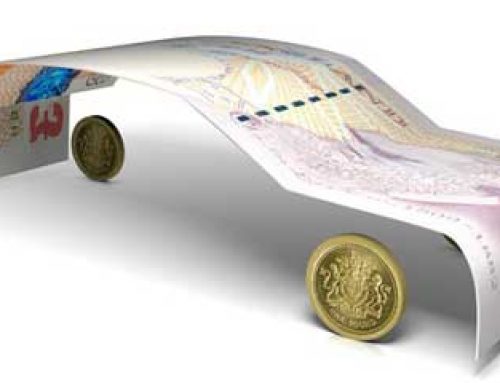[fusion_builder_container hundred_percent=”no” equal_height_columns=”no” menu_anchor=”” hide_on_mobile=”small-visibility,medium-visibility,large-visibility” class=”” id=”” background_color=”” background_image=”” background_position=”center center” background_repeat=”no-repeat” fade=”no” background_parallax=”none” parallax_speed=”0.3″ video_mp4=”” video_webm=”” video_ogv=”” video_url=”” video_aspect_ratio=”16:9″ video_loop=”yes” video_mute=”yes” overlay_color=”” video_preview_image=”” border_color=”” border_style=”solid” padding_top=”” padding_bottom=”” padding_left=”” padding_right=”” type=”legacy”][fusion_builder_row][fusion_builder_column type=”1_1″ layout=”1_1″ background_position=”left top” background_color=”” border_color=”” border_style=”solid” border_position=”all” spacing=”yes” background_image=”” background_repeat=”no-repeat” padding_top=”” padding_right=”” padding_bottom=”” padding_left=”” margin_top=”0px” margin_bottom=”0px” class=”” id=”” animation_type=”” animation_speed=”0.3″ animation_direction=”left” hide_on_mobile=”small-visibility,medium-visibility,large-visibility” center_content=”no” last=”true” min_height=”” hover_type=”none” link=”” border_sizes_top=”” border_sizes_bottom=”” border_sizes_left=”” border_sizes_right=”” first=”true”][fusion_text columns=”” column_min_width=”” column_spacing=”” rule_style=”default” rule_size=”” rule_color=”” content_alignment_medium=”” content_alignment_small=”” content_alignment=”” hide_on_mobile=”small-visibility,medium-visibility,large-visibility” sticky_display=”normal,sticky” class=”” id=”” font_size=”” fusion_font_family_text_font=”” fusion_font_variant_text_font=”” line_height=”” letter_spacing=”” text_color=”” animation_type=”” animation_direction=”left” animation_speed=”0.3″ animation_offset=””]
We help you decide whether a salary sacrifice car is right for you
Q. My company has introduced a salary sacrifice car scheme for employees but I’m unsure how it works. Can you help?
A. Salary sacrifice car schemes have been one of the success stories of recent times, and increasing numbers of companies throughout the UK now offer their employees the benefit of a brand new car in return for surrendering a set amount from their salary every month.
One of the main reasons behind introducing an employee benefit car scheme is that it extends the number and range of flexible benefits that are available to company employees.
It also opens up the opportunity for wider car ownership throughout your company, not just for those people who qualify for a car through their job description or seniority.
Q. How does a car salary sacrifice scheme work?
A. In much the same way that childcare vouchers, cycles and pensions are widely available through salary sacrifice schemes.
For a set amount of money deducted from your gross pay before tax each month, you will be provided with a brand new lease car of your choice for a typical three year period. All running expenses are covered and all you have to do is add fuel.
Q. Is that more tax efficient than a car acquired through a personal finance scheme?
A. The tax rules changed recently. From 6 April 2017, drivers are taxed on the higher value of either the amount of cash forgone or the benefit-in-kind value of the car. This means that the previous tax savings available to drivers choosing a car with a low P11D value and/or a car with low CO2emissions no longer benefit from tax savings.
However, salary sacrifice still brings tax savings to those drivers choosing an Ultra Low Emission Vehicle (ULEV – cars emitting 75g/km CO2 or less) which will be exempt from the tax changes. This is also very attractive to organisations aiming to lower their carbon emissions as part of their corporate and social responsibility initiatives.
A guide to the 2017 tax rules changes can be viewed here.
Q. What is Benefit in Kind tax and why do I have to pay it?
A. Benefit-in-Kind tax is payable on a salary sacrifice car in exactly the same way as on any other company-provided car and is based on the vehicle’s CO2 emissions.
The Government provides a scale of charges linked to the car’s emissions which determines how much tax you will have to pay each year. You can find the rate based on the CO2 emissions of your chosen vehicle here.
To benefit from greater savings, employees who select a car through a salary sacrifice scheme tend to opt for those with the lowest possible CO2 emissions.
Q. Doesn’t that limit the number of cars I can choose from?
A. No, not necessarily. One of the biggest single factors behind the increase in such car schemes is the large and growing numbers of low-emitting, brand new cars which are now available from all the leading motor manufacturers.
It is important that you select a car with as low carbon emissions as possible now, to keep your tax bills down in the future. It’s a simple equation: the lower the car’s carbon emissions, the lower the corresponding tax bills.
Q. What are the key benefits of salary sacrifice for employees?
A. Without doubt the major benefit of a salary sacrifice car is the all-embracing and fully expensed nature of the package provided with the car.
Typically, this includes all servicing, maintenance and repair, a no-quibble tyre policy, all automotive glass, annual road fund licence and breakdown and recovery assistance.
All of these are significant benefits because, if you’d chosen to fund your new car through some form of finance package, you would have to pay extra for them all.
But perhaps the biggest single benefit is that the car comes complete with fully comprehensive car insurance, a cost which can typically run to hundreds of pounds, and which you would have to pay yourself, otherwise.
This all adds up to an extensive and cost-effective car benefits package that other finance methods, such as Personal Contract Purchase, find hard, if not impossible, to match.
Q. What are the key differences between a salary sacrifice car and a finance car?
A. There are number of essential differences between cars acquired through a salary sacrifice car scheme and those acquired through some form of personal finance.
To begin with, no deposit is required for a salary sacrifice car, while an initial down-payment is usually required for a finance vehicle.
The salary sacrifice monthly payment includes all servicing, maintenance and repair, a no-quibble tyre policy, all automotive glass, annual road fund licence and breakdown and recovery assistance. And it also includes fully comprehensive motor insurance, fixed for up to three years.
This is a major point of difference to taking a car through a dealer finance scheme.
With a salary sacrifice scheme, you will also benefit from the corporate discounts that the supplier – typically a leasing company – has been able to negotiate with the vehicle manufacturer, based on the volume of cars being ordered.
Such volume related discounts are not available through a typical car finance package and it is left to you to negotiate the best rate you can for yourself.
As already mentioned, salary sacrifice car schemes provide a wide range of no- extra cost benefits and services that are not available through a car finance agreement without additional payment.
And, due to the fact the Benefit-in-Kind tax is payable on the salary sacrifice car, this promotes the natural choice of low-carbon emitting cars which are tax and energy efficient and less damaging to the environment.
Get in touch
Need to talk through your options when it comes to a car salary sacrifice scheme? Get in touch with our team of experts today. When it comes to car benefits for employees of any organisation, a salary sacrifice scheme is a smart option to consider. Tax efficient employee benefits in the form of a company car will give you the option of using a new car without all the hassle of having to organise servicing, MOTs and expensive repairs.
[/fusion_text][/fusion_builder_column][/fusion_builder_row][/fusion_builder_container]








